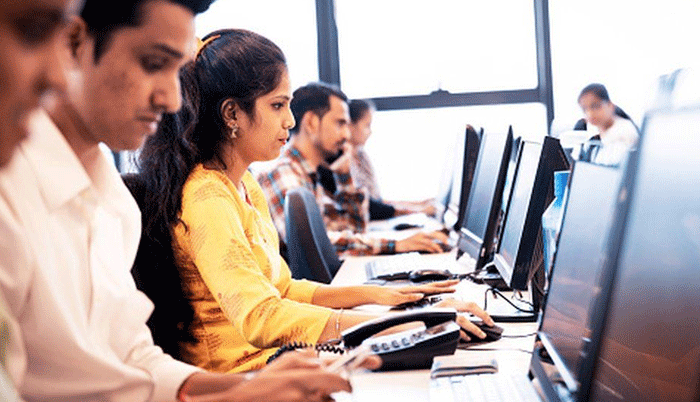![]() Home > Asia
Home > Asia
Oxfam Discrimination Report: Why Women And Muslims Earn Less In India

GETTY IMAGES | Indian work places are dominated by men
![]() September 15th, 2022 | 14:11 PM |
September 15th, 2022 | 14:11 PM | ![]() 468 views
468 views
INDIA
Indian women face discrimination in the job market and earn less than men even when they have the same qualifications and experience, a new report says.
Oxfam India's Discrimination Report 2022 blames "societal and employers' prejudices" for women's lower wages.
Other marginalised communities also suffered discrimination in the job market, the report found.
These included those at the bottom of the caste system, tribespeople and members of the Muslim community.
"Discrimination in the labour market is when people with identical capabilities are treated differently because of their identity or social backgrounds," Amitabh Behar, Oxfam India's CEO, said.
"The inequality for women and other social categories is not just due to poor access to education or work experience but because of discrimination."
Researchers from Oxfam looked at government data on jobs, wages, health and access to agricultural credit among various social groups from 2004 to 2020 and used statistical models to quantify discrimination.
They found that every month on average, men earned 4,000 rupees ($50; £44) more than women, non-Muslims earned 7,000 rupees more than Muslims and those at the bottom of the caste system and tribespeople made 5,000 rupees less compared to others.
India is often called out for its mistreatment of women - hundreds of thousands of female foetuses are aborted annually, leading to a terribly skewed sex ratio. And from the time of their birth, a majority of women face discrimination, prejudice, violence and neglect that can continue all their lives.
It's also well known that there is gender inequality in the labour force, with far fewer women in the workforce generally.
According to Indian government data, in 2020-21 women made up only 25.1% of the labour force, which is not just considerably lower than many other countries such as Brazil, Russia, China and South Africa, but also a huge decline within the country from 42.7% in 2004-05.
This, Oxfam says, is a cause for concern as it shows the withdrawal of women from the workforce despite India undergoing rapid economic growth during the period. In the last couple of years the pandemic may have accelerated this trend - during lockdowns as jobs became scarce, women were pushed out of the labour market.
The report says the high degree of gender discrimination best explains the existence of a large segment of well-qualified women not "wanting" to join the labour market because of household responsibilities or social status.
"It is thus patriarchy that makes a large segment of women, who have the same or even higher qualifications as compared to men, stay outside employment, and this has shown no improvement over time."
Apart from women, the report says that "historically oppressed groups such as Dalits (formerly untouchables), tribals and religious minorities such as Muslims" also continue to face discrimination in accessing jobs, livelihoods, and agricultural credit.
"During the early months of the Covid-19 pandemic, the sharpest increase in unemployment - at 17% - was for Muslims," it adds.
"The fall-out of discrimination in Indian society is not just social and moral but also economic, leading to adverse consequences to society," Mr Behar says, adding that the government, political parties, policymakers and civil society must work together to build a discrimination-free India.
Source:
courtesy of BBC NEWS
by BBC News
If you have any stories or news that you would like to share with the global online community, please feel free to share it with us by contacting us directly at [email protected]